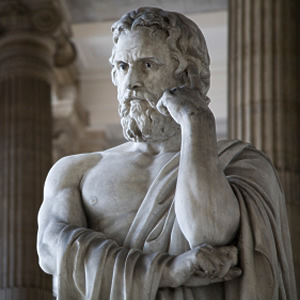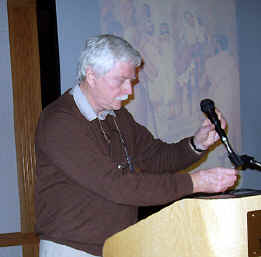mythology
Stephany, Timothy J.
Timothy J. Stephany is a keen student of mythology in general and Norse mythology(a) in particular. He has also written a book, The Eden Enigma[840], which explores the background to the biblical story of the Garden of Eden. He has an extensive website that offers a fascinating and well illustrated paper(b) on the remarkable Göbekli Tepe site which includes a number of carved animal that Stephany suggests may be a representation of constellations when they were carved. His site also includes a review(c) of Jim Allen’s theory, which places Atlantis in the Andes, but concludes at the end of a lengthy paper that the evidence is not strong enough. His article on paleoastronomy(d) should be read in conjunction with his comments on Göbekli Tepe.
(a) See Archive 3611
(b) See: Archive 3610
*(c) See: https://web.archive.org/web/20180826103142/https://www.timothystephany.com:80/atlantis.html
(d) See: https://web.archive.org/web/20180826101824/https://www.timothystephany.com:80/paleoastronomy.html*
Euhemerus
 Euhemerus (330-260 BC) was a Greek philosopher and was the best known of the classical writers to rationalise mythology as history and who gave his name to this method of rationalising. Comparable views have also been identified in the writings of a number of early authors including. Xenophanes, Herodotus, Hecataeus of Abdera and Ephorus.
Euhemerus (330-260 BC) was a Greek philosopher and was the best known of the classical writers to rationalise mythology as history and who gave his name to this method of rationalising. Comparable views have also been identified in the writings of a number of early authors including. Xenophanes, Herodotus, Hecataeus of Abdera and Ephorus.
Among his contentions was one that identified Zeus as a king who died on Crete(b). Euhemerism particularly saw the ‘gods’ in Greek mythology as glorified manifestations of early kings and cultural heroes from a distant past. Support for this idea has waxed and waned over the centuries, with fewer followers today. An interesting paper(a) by Professor William Harrison on this subject is worth reading.
>Another Greek writer about whom very little is known was Palaephatus, although there is evidence that he wrote in Athens in the late 4th century BC and was also famous for rationalising myths(c).<
(b) Zeus Is Dead: Euhemerus and Crete, S. Spyridakis, The Classical Journal, Vol. 63, No. 8, May, 1968, pp. 337-340.
Zeilinga de Boer, Jelle
Jelle Zeilinga de Boer is anemeritus professor of geology at Wesleyan University in Middletown, Connecticut and co-author of  Volcanoes in Human History[681] [together with fellow geologist Donald Theodore Sanders. Chapter three of their book is entitled ‘The Bronze Age Eruption of Thera: Destroyer of Atlantis and Minoan Crete?’ in which they add their weight to the suggestion that the Theran eruption played a part in the development of the story of Atlantis (p.70).
Volcanoes in Human History[681] [together with fellow geologist Donald Theodore Sanders. Chapter three of their book is entitled ‘The Bronze Age Eruption of Thera: Destroyer of Atlantis and Minoan Crete?’ in which they add their weight to the suggestion that the Theran eruption played a part in the development of the story of Atlantis (p.70).
What is remarkable is that the two geologists were apparently so seduced by the Minoan Hypothesis and in spite of Plato’s clear statement that Atlantis was destroyed by an earthquake they were prepared to contradict him and support instead the idea that a volcanic eruption was responsible. They also link the eruption with the Flood of Deucalion. In 2005 they co-authored a companion book, Earthquakes in Human History[0984].
Some of Zeilinga de Boer’s views coincide with those of William Lauritzen as expressed in his recent book, The Invention of God. Haraldur Sigurdsson the volcanologist, has also suggested that volcanic eruptions, particularly Thera, have influenced the development of Greek myths such as Hesiod’s Theogony and Plato’s Atlantis!
